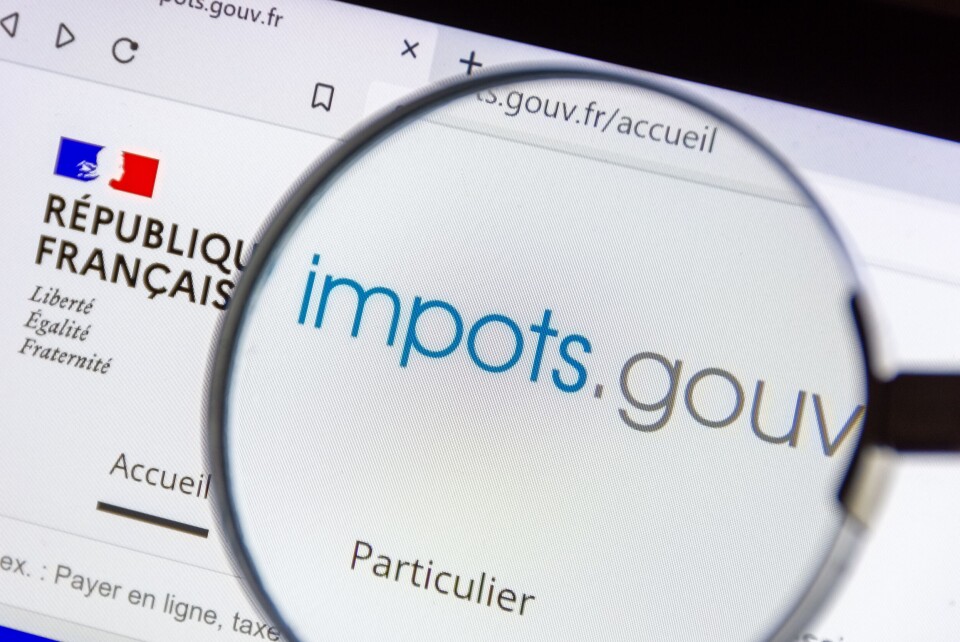-
France finally passes 2026 budget - what it means for residents
Budget has measures to help homeowners and low earners but is more punitive to business and local authorities
-
Am I being overcharged on savings in France?
A reader writes about income tax demands on interest
-
I had no debits taken for French residential tax - what should I do?
Amounts taken depend on how much, and when, you are scheduled to pay
French tax return tip: why selecting this box can reduce your bill
Many people are unaware of the significance of ‘box 2OP’ which affects taxation of investment income such as bank interest

Income tax return Box 2OP is not well known and has only existed on declarations since 2019, but not selecting it, where it would have been appropriate to do so, can result in you paying more tax than necessary.
The box relates to the so-called ‘flat tax’ introduced by President Emmanuel Macron which is levied by default on all investment income unless it is tax exempt, such as is the case for Livret A accounts, for example.
Officially called prélèvement forfaitaire unique (PFU), this consists of 12.8% of income tax, along with 17.2% of social charges. Note, however, that the latter should only be 7.5% if you are attached to another EU/EEA/Swiss state health system and are not a burden on the French health system (this is also the case, for example, for UK state pensioners with S1 forms as it was maintained after Brexit).
Unless you have a low income and previously instructed your bank not to take the income tax part, both income tax and social charges at a total of 30% (20.3% if you have the lower social charges rate) will already, for example, have been levied on French bank interest you received last year.
Read more: When is the deadline for filing your French income tax return
The PFU ‘flat tax’ will also automatically be levied on all other forms of taxable investment income – unless you choose otherwise, including on the gain element of assurance vie withdrawals.
However, PFU is not a ‘definitive’ tax and you can opt instead via box 2OP to have the ordinary tax bands applied to your investment income as you complete your income tax return. If this choice results in lower tax overall, you will be refunded any excess you may have already paid.
What is box 2OP?
Box 2OP is the box to select if you want the ordinary bands to apply to investment income. It is found in the online declaration investments section or at the bottom of page 3 of the main 2042 paper form. To generate this you select revenus de capitaux mobiliers when asked to choose the rubriques - sections - you require. Note that in the case of French income, it will probably be pre-filled and presented to you as the income will have been declared by your bank.
If you cannot find the box, it is also possible to use the search box with its name.
The choice of box 2OP is likely to be of interest to those with relatively low overall incomes, whose average household income tax rate (not the highest band) will be less than 12.8%.
As a reminder, in the case of 2022 income, declared this spring, up to €10,777 is taxed at 0%, then up to €27,478 is at 11%, then up to €78,570 is at 30% and so on). Note that these bands apply after application of the ‘family quotient’ parts system, a single person being one part and a couple two etc, so that a couple can earn twice as much while benefiting from the lower bands.
If you already selected box 2OP last year it will be pre-selected this time on the online declaration but you can deselect it if you prefer.
If your overall tax situation suggests it would be favourable to you, the option is usually flagged up to you at the end of the declaration if you have not selected it and did not do so last time.
If you do select it, remember it will apply to all your investment income; you cannot opt for it for certain income and not others, such as bank interest but not income from shares.
Other effects of box 2OP
Apart from the effect on the tax rate applied, ticking box 2OP is now required if you want to benefit from a tax allowance for length of ownership with regard to capital gains from shares bought before 2018 (50% for holdings between two and eight years and 65% above this), or a 40% allowance applied to dividends.
Related articles
Free phone help from accountants for French income tax declarations
Avoid income tax return errors by understanding the French system
























